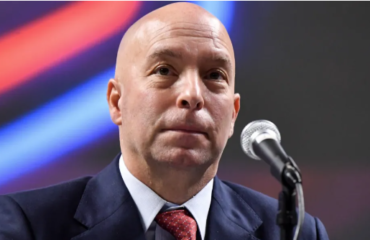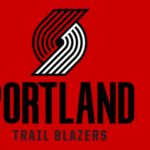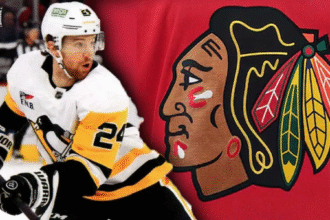Arguing that Montreal Canadiens general manager Kent Hughes would have had a successful 2024 trade deadline even without trading goalie Jake Allen might seem like a challenging proposition, but let’s entertain the idea nonetheless.

Ultimately, Hughes did manage to make the necessary moves, rendering this debate somewhat irrelevant. However, it’s worth revisiting the situation: As the deadline approached, the Canadiens had only achieved the following:
If Hughes had only secured a first-round pick for all his efforts, some might view it as slightly underwhelming. However, objectively speaking, Monahan was the most significant asset in his possession. By successfully trading him and obtaining returns that were once considered improbable, Hughes had already fulfilled his primary objectives before the deadline, positioning himself to address the Jake Allen situation later on.
Hughes Gets His First-Round Pick for Monahan
Admittedly, the trade involving Monahan to the Winnipeg Jets occurred more than a month before the deadline, potentially excluding it from being strictly classified as a deadline deal. However, the Canadiens couldn’t afford to wait, especially considering the recent transaction by the Calgary Flames, who arguably established the market price for centers by trading Elias Lindholm to the Vancouver Canucks.
Moreover, Monahan’s extensive injury history made delaying the trade, even for the possibility of securing a better return, a risky proposition that any astute general manager would avoid, especially when a deal was on the table. Given these circumstances, Hughes wasted no time in making the necessary move. Plus, when comparing the returns with what other top forwards fetched during the actual deadline, it’s challenging to find fault with Hughes’ decision.
In hindsight, it appears Hughes obtained fair value, if not more, for all the assets he traded, particularly in Allen’s case. The trade saw the Canadiens sending Allen to the New Jersey Devils in exchange for a conditional 2025 third-round pick, which could potentially escalate to a second-round pick if Allen meets certain performance criteria next season and the Devils reach the playoffs.
Allen Becomes Another Page in Case Study of Hughes’ Brilliance
Even if Allen’s performance doesn’t meet expectations and the Devils fail to reach the playoffs, the Canadiens effectively parted with a third-round pick from the 2020 NHL Entry Draft to acquire him initially. In light of this, it’s difficult to envision a scenario where Hughes could have secured a better outcome. Given Allen’s age of 33 and the gradual decline in his statistics over his tenure with the Canadiens, largely due to the team’s defensive struggles, it’s somewhat surprising that Hughes managed to extract such favorable terms in the trade.
With the Canadiens retaining backup goalie Cayden Primeau, Allen found himself relegated to third on the goaltending depth chart, rendering him expendable. Furthermore, the diminishing effectiveness of the three-goalie system, coupled with Allen’s situation, necessitated his departure in some form. While Hughes did have to retain salary in the Allen deal, which extends until 2025, it’s challenging to envision an alternative approach that would have yielded better results. Thus, credit is due to Hughes for orchestrating a successful transaction.
In fact, Hughes’ performance at the deadline can be viewed as overwhelmingly positive. While he didn’t trade away all of the team’s veterans, such a strategy wasn’t realistically feasible. Although there was potential to trade defenseman David Savard, whose contract also expires in 2025, the returns wouldn’t have justified the move, considering what other teams were receiving for similar shutdown defensemen. Consequently, the Canadiens can continue to benefit from Savard’s contributions and leadership for another season, serving as their primary shutdown presence, which is a valuable asset.
It could have been detrimental if the Canadiens had opted to retain Savard over Jordan Harris, amid rumors that either player could be moved. By retaining Harris, who holds greater long-term potential for the organization, Hughes demonstrated prudent decision-making aligned with the team’s priorities: avoiding trades for the sake of making trades and maintaining a focus on the future.
Even Perreault Trade Is a Win
The acquisition of Perreault might seem underwhelming at first glance. However, by trading away Mysak, a center of which the Canadiens already had many, they acquired a right winger with greater offensive potential. While there’s no guarantee that Perreault will develop into a top-tier player himself, the fact that he’s the son of former Hab Yanic Perreault suggests he possesses game-changing abilities. Canadiens fans hoping for another first-round pick, whether through Savard or another player, technically got their wish with Perreault, who was selected 27th overall in 2020.
Realistically, what more can you expect from a late-round pick with uncertain NHL prospects? Essentially, the Canadiens would likely have been looking at a similar type of player even without the four seasons of development time that the Anaheim Ducks have invested in Perreault so far. While losing a former second-round pick like Mysak isn’t ideal, objectively speaking, he wasn’t projected to receive significant opportunities based on the team’s depth chart. The same uncertainty might apply to Perreault, but Hughes deserves credit for taking a chance on him.
Ultimately, the only unsuccessful move for Hughes was his inability to secure value for Tanner Pearson. It appears unrealistic to expect a meaningful return for a pending unrestricted free agent with modest statistics (five goals and six assists in 44 games). However, if that’s the only significant criticism, Hughes can be considered to have performed admirably.
While some critics may remain dissatisfied, it’s worth considering Hughes’ track record of making astute trades and his ability to create value where there seemingly was none. If there’s a feeling that he could have done more, it’s essentially an acknowledgment of Hughes’ competence. His recent actions reinforce this belief.
In summary, Hughes addressed the three-goalie rotation, which was a crucial task, and managed to do so effectively. Although he didn’t surpass expectations with the Allen trade, his overall body of work suggests that he has consistently made shrewd decisions during his tenure with the team. When the Canadiens are ready to compete, they’ll have the assets to trade back, thanks to Hughes’ strategic maneuvers. There’s little reason to doubt his ability to make the right moves in the future, given his track record thus far.





